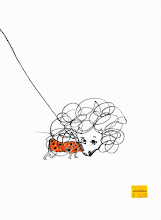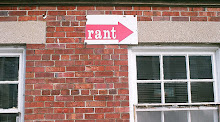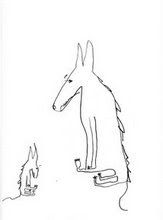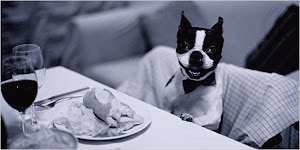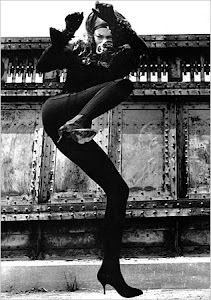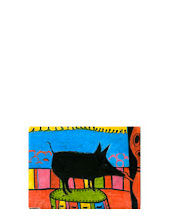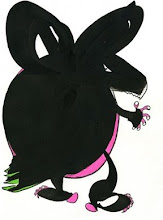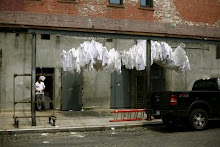I find incompetence deeply irritating. I don't think those who can't work a cellphone are charming; those with no sense of direction are a burden; I am not amused, ever, by anyone who tends to eat a few times a day and claims ineptitude in the kitchen -- everyone can boil something up, or anyone who doesn't feel like doing that can order in, it's not that hard. Not WANTING to cook is quite another thing, as is hoping someone else will work out the boring stuff. Good on you if you can find someone to do your dirty work for you, but please don't cloak it in "I'm so sweet and dopey."
I myself am deeply incompetent at all the things I find dull, but I don't try to make it into cocktail conversation. I have never balanced a cheque book (preferring to spend until the phone calls start) and have no idea really how to do taxes -- I screw it up and take the hit. I'm no good at domestic chores and can't work a power drill. So, I hire people to do those things and never speak of them.
There is a whole section of literature, if it can be called that, that is all about the cute incompetent. Bridget Jones may have started it, let's blame her. This Slummy Mummy book was excerpted in Vogue and it seemed light and funny so I bought it but sadly it is as tedious as Bridget except I have fewer things to relate to. I understand fully that the responsibility of looking after myself is as much work as I'm prepared not to do well and I already know the alphabet so I thought it best not to have kids. This book is about the incompetent mummy who just can't keep it together but adorably so. Poor thing, she's trying to flirt but discovers yesterday's underwear balled up in her jeans; she can't believe another mummy can manage a gorgeous coat without jam or egg stuck to it; she never gets out and her life is a pile of unfinished laundry. I can't stand her.
Why oh why is the ruling female in current fiction this dopey hapless woman with bad hair? (and if you doubt me let me reassure you: She ALWAYS has bad hair, the wrong outfit on, sends emails to the entire company, needs to lose weight/stop drinking/stop smoking/stop fantasizing, she needs a system. She is always a mess and the day Mr. Right walks through the door she's in sweatpants and the door falls off. Yet it all works out in the end. )
I once knew a woman who was either the first woman ever to be made partner at her law firm, or was the first woman ever in Germany to be made partner. Either way a glorious example of what to do right. When she had her baby she told me she often went to work with pablum stains on her Lagerfeld. "Well, that's it, that's my job and that's my son," she said with total confidence and she OWNED it -- she was a mother and a lawyer and the pablum stains were a badge of honour in a good way. She was not intending to be cut a break as a hapless cutey.
I am so very tired of this Bridget-type character. I don't actually relate to her. I don't want to relate to her. Please writers everywhere, let her go away and learn how to cook.
Sunday, July 1, 2007
Mister Pip
Many years ago, after a great love walked out without adequate reason or explanation (to my way of thinking anyway) I decided that's it. I'm done. I'm out. As of today I will be Miss Havisham and I give up on the whole bloody thing - relationships, men, love and all that comes and goes with it.
I realized every time I tried to be conventional, convention blew up in my face. So, my life would be about other things -- the pursuit of beauty, art, intelligence, words, and would NOT be about the pursuit of a happy husband, three kids and a dog. Over time I have become comfortable and relieved about this.
But my mantra was always I am Miss Havisham -- thing is, I had no idea who she is and so I read, or started to read, Great Expectations. I stopped calling myself Havisham.
A few days ago I ran into an old friend and former colleague who has never steered me wrong with books. She is an expert and books are her profession but more than that she has a delight in fiction that matches my own, and she has the ways and means to savour the best the current publishing season has to offer.
Judith recommended two books, Mister Pip being one. It isn't available for sale yet but by begging shamelessly I received an advance reading copy and devoured this book yesterday.
Great Expectations begins with a kind of a poem: "My father's family name being Pirrip, and my christian name Philip, my infant tongue could make of both names nothing longer or more explicit than Pip. So, I called myself Pip, and came to be called Pip."
Mister Pip begins similarly, with naming, this time: 'Everyone called him Pop Eye."
This is a first novel and few have such big subjects or flights of imagination that this one does. Mister Pip is the story of a story and the grip of storytelling, the escape of stories, and the fearsome power books, reading, ideas can have. It is set on an island somewhere in the world near Australia and there is some kind of fierce and awful war going on about something or other. Interestingly, there are many books being written and published now that have an amorphous and cruel war as a background -- How I Live Now being one -- a war as seen and experienced on the ground. That is, with no explanations, as something felt but not understood. It reminds me of trying to understand a painting by looking at it up close -- you can see that it is a painting but nothing else is known.
The fathers, older boys and most men have been swept into whatever the battle is, leaving the women, children and Mr. Watts, also known as Pop Eye. There is nothing to do, the teachers are all gone and so Mr. Watts decides to re-open the school and to teach the children whatever he can. His biggest lesson is the story of Great Expectations, "the greatest novel by the greatest English writer of the nineteenth century, Charles Dickens." He reads a chapter a day and Matilda, who is the teller of this story of a story, falls into the spell of Pip and his world, and it becomes as real to her as the mysterious world in which she really lives.
"What I am about to tell results, I think, from our ignorance of the outside world. My mum knew only what the last minister had told her in sermons and conversations....she had heard that man had been to the moon but was inclined not to believe such stories. She did not like boastfulness. She liked even less the thought that she might have been caught out, or made a fool of...."
And therein is the crux of this delicious book -- the mothers of the schoolchildren are afraid of what they are learning, and begin to loathe the man who is, they fear, taking their children from them by having those children inhabit a very different world than the one they live in: a world of ideas and imagination rather than what IS. But over time the mums start to come to the school and start to teach what they know for sure -- the meaning of blue, for example, or how to watch a crab to know the weather. They also start to fall into the power of new ideas.
Matilda comes to know Pip to be as real as any other person she knows, and she puzzles over his decisions. Puzzles over why he would leave his birthplace and call himself Handel -- but a name becomes the truth of a thing, the identity of a thing. She puzzles over why Pip continues to love Estella -- and learns that we sometimes love imperfect things, and love things we cannot have. Through the book she learns the world.
Ideas both create and destroy. When the "rambos" come to the village looking for this Pip character, Mr. Watts is killed; Matilda's life is saved by an idea that gives her hope, strength and courage.
Later Matilda learns she may not have been so different from her mum, having to rely on what she is told rather than what she can learn for herself. When she finally has a copy of Great Expectations in her hands she realizes that she wasn't being read the text but rather Mr. Watts' version of the text -- the story, in other words, as he knew it. And this is as it is with every book -- we can only know what we know of it, not the truth of it. As with the Christians who, once the printing press made the Bible more widely available, realized that the priests may have been selling them a bill of goods, Matilda's faith is shaken.
Mister Pip is a big, big book told like a fable and fairy story, in a deceptively simple manner. It is a book about the effects of being cut off, as the islanders, or cutting yourself off, as Miss Havisham, and the poignant and destructive results of that. It flip-flops between showing that truth can save your life -- Mr. Watts could simply have said I'm not Pip, he's a character in a book -- and a story can save you, as it did Matilda. It flip-flops between what is "truth" versus "story" at their core -- the mums fear the story but live off many of their own, an idea like "blue" is as tangible as eating. It is also about having the courage to learn and understand things that are painful, the implication being that innocence is perfection but cut off, experience is imperfect. Are we better for knowing rather than not knowing? It is hard to say, really. But knowledge draws us as surely as the children were drawn deeply into the story of Pip. Whether we live or die of it -- it being our ability to accept the truth and the power of ideas which often means first facing the fear of being a fool -- depends on whether we are Havisham, Estella or Pip. And I can tell you for certain that you can change your mind about which of those you want to be.
I realized every time I tried to be conventional, convention blew up in my face. So, my life would be about other things -- the pursuit of beauty, art, intelligence, words, and would NOT be about the pursuit of a happy husband, three kids and a dog. Over time I have become comfortable and relieved about this.
But my mantra was always I am Miss Havisham -- thing is, I had no idea who she is and so I read, or started to read, Great Expectations. I stopped calling myself Havisham.
A few days ago I ran into an old friend and former colleague who has never steered me wrong with books. She is an expert and books are her profession but more than that she has a delight in fiction that matches my own, and she has the ways and means to savour the best the current publishing season has to offer.
Judith recommended two books, Mister Pip being one. It isn't available for sale yet but by begging shamelessly I received an advance reading copy and devoured this book yesterday.
Great Expectations begins with a kind of a poem: "My father's family name being Pirrip, and my christian name Philip, my infant tongue could make of both names nothing longer or more explicit than Pip. So, I called myself Pip, and came to be called Pip."
Mister Pip begins similarly, with naming, this time: 'Everyone called him Pop Eye."
This is a first novel and few have such big subjects or flights of imagination that this one does. Mister Pip is the story of a story and the grip of storytelling, the escape of stories, and the fearsome power books, reading, ideas can have. It is set on an island somewhere in the world near Australia and there is some kind of fierce and awful war going on about something or other. Interestingly, there are many books being written and published now that have an amorphous and cruel war as a background -- How I Live Now being one -- a war as seen and experienced on the ground. That is, with no explanations, as something felt but not understood. It reminds me of trying to understand a painting by looking at it up close -- you can see that it is a painting but nothing else is known.
The fathers, older boys and most men have been swept into whatever the battle is, leaving the women, children and Mr. Watts, also known as Pop Eye. There is nothing to do, the teachers are all gone and so Mr. Watts decides to re-open the school and to teach the children whatever he can. His biggest lesson is the story of Great Expectations, "the greatest novel by the greatest English writer of the nineteenth century, Charles Dickens." He reads a chapter a day and Matilda, who is the teller of this story of a story, falls into the spell of Pip and his world, and it becomes as real to her as the mysterious world in which she really lives.
"What I am about to tell results, I think, from our ignorance of the outside world. My mum knew only what the last minister had told her in sermons and conversations....she had heard that man had been to the moon but was inclined not to believe such stories. She did not like boastfulness. She liked even less the thought that she might have been caught out, or made a fool of...."
And therein is the crux of this delicious book -- the mothers of the schoolchildren are afraid of what they are learning, and begin to loathe the man who is, they fear, taking their children from them by having those children inhabit a very different world than the one they live in: a world of ideas and imagination rather than what IS. But over time the mums start to come to the school and start to teach what they know for sure -- the meaning of blue, for example, or how to watch a crab to know the weather. They also start to fall into the power of new ideas.
Matilda comes to know Pip to be as real as any other person she knows, and she puzzles over his decisions. Puzzles over why he would leave his birthplace and call himself Handel -- but a name becomes the truth of a thing, the identity of a thing. She puzzles over why Pip continues to love Estella -- and learns that we sometimes love imperfect things, and love things we cannot have. Through the book she learns the world.
Ideas both create and destroy. When the "rambos" come to the village looking for this Pip character, Mr. Watts is killed; Matilda's life is saved by an idea that gives her hope, strength and courage.
Later Matilda learns she may not have been so different from her mum, having to rely on what she is told rather than what she can learn for herself. When she finally has a copy of Great Expectations in her hands she realizes that she wasn't being read the text but rather Mr. Watts' version of the text -- the story, in other words, as he knew it. And this is as it is with every book -- we can only know what we know of it, not the truth of it. As with the Christians who, once the printing press made the Bible more widely available, realized that the priests may have been selling them a bill of goods, Matilda's faith is shaken.
Mister Pip is a big, big book told like a fable and fairy story, in a deceptively simple manner. It is a book about the effects of being cut off, as the islanders, or cutting yourself off, as Miss Havisham, and the poignant and destructive results of that. It flip-flops between showing that truth can save your life -- Mr. Watts could simply have said I'm not Pip, he's a character in a book -- and a story can save you, as it did Matilda. It flip-flops between what is "truth" versus "story" at their core -- the mums fear the story but live off many of their own, an idea like "blue" is as tangible as eating. It is also about having the courage to learn and understand things that are painful, the implication being that innocence is perfection but cut off, experience is imperfect. Are we better for knowing rather than not knowing? It is hard to say, really. But knowledge draws us as surely as the children were drawn deeply into the story of Pip. Whether we live or die of it -- it being our ability to accept the truth and the power of ideas which often means first facing the fear of being a fool -- depends on whether we are Havisham, Estella or Pip. And I can tell you for certain that you can change your mind about which of those you want to be.
Subscribe to:
Posts (Atom)
